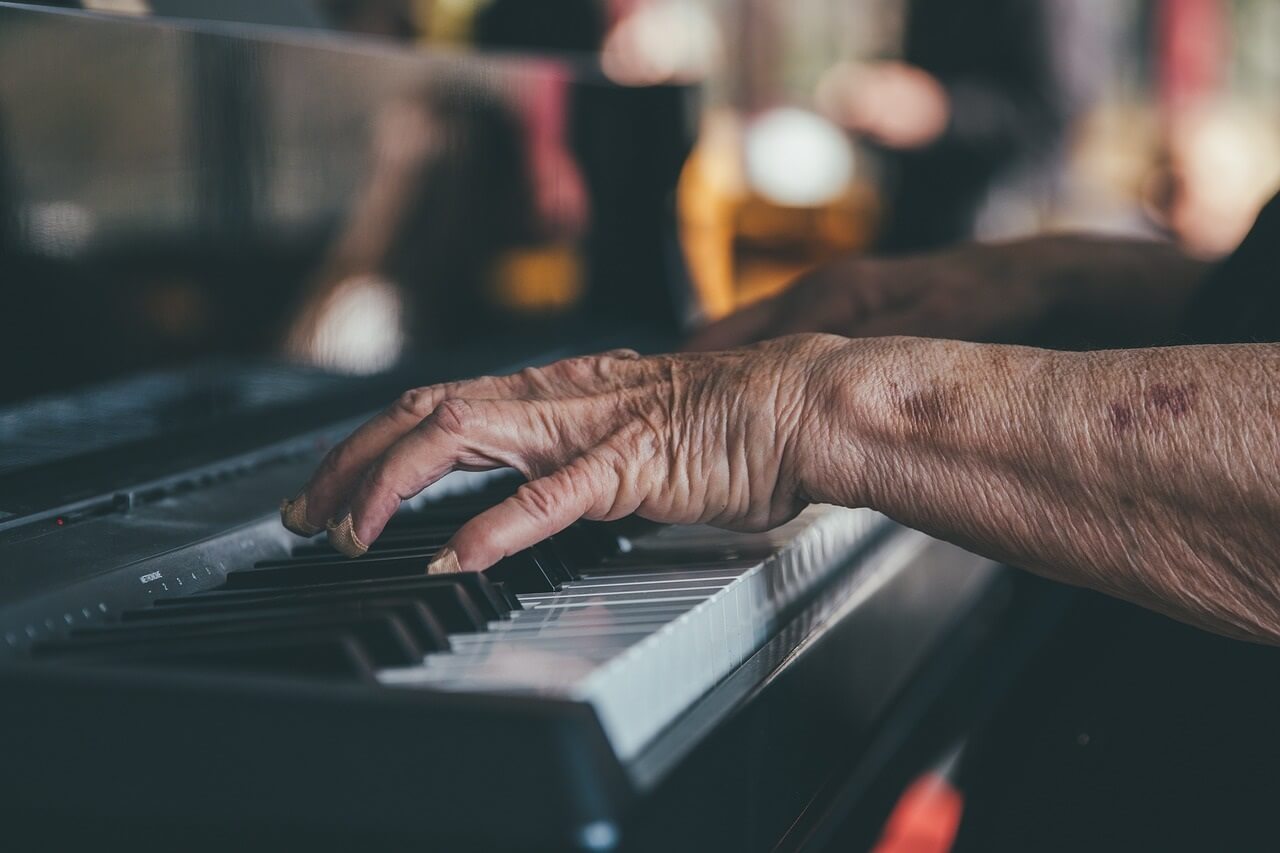
Music, as a recent conference discussed, benefits us at any age, but perhaps most acutely at the beginning and towards the end of our lives. Both listening to and playing music affect the brain in many positive ways, and more and more, science and medicine are looking to use those effects in targeted therapies.
Musicians, whether amateur or professional, seem to benefit the most.
Aging Normally: The Musician’s Bonus
Researchers at the Chinese Academy of Science wanted to delve into why musicians’ brains benefit from constant practise. Their paper, titled Successful aging of musicians: Preservation of sensorimotor regions aids audiovisual speech-in-noise perception was published in April 2023 in Science Advances.
Previous studies have shown that learning and practising/performing music can lessen some of the usual declines in brain function that occur as we age, including what is called audiovisual speech-in-noise perception. The term refers to the visual cues that a listener receives from a talker’s face, and which allow the listener to predict what will be said.
The study compared fMRI (functional magnetic resonance imaging, which measures the small changes that occur in the flow of blood as the brain is active) of older musicians, older non-musicians, and young non-musicians.
Each group was asked to identify syllables from audiovisual cues which were masked by peripheral noise. Here’s what they found:
- Older musicians out-performed older non-musicians;
- The results from older musicians and younger musicians were similar;
- Older musicians retained the neural structures that perceive speech, while older non-musicians displayed a degraded neural representation in that area;
- The results of older musicians correlated with the intensity of their training.
The results from older musicians included a greater degree of activation of specific regions of the brain, including the speech motor and visual motion regions than those of older non-musicians. Other indications also pointed to a greater degree of alignment in the sensorimotor areas of the brain which control how the body responds to stimuli from the environments, such as feeling the warmth of the sun.
Other benefits displayed by the older musicians include enhanced central auditory processing, preserving working memory and auditory attention.
Those results, the researchers believe, reveal the mechanisms at work. It’s about both the enhanced functions and those that are protected from the usual degradation by reason of age. Some brain functions are preserved, and it appears musical study also allows the brain to compensate for functions that have already declined.
Either way, for musicians, it’s a win-win situation — a more youthful brain, with the caveat that results depend on how hard you practise.
“Playing music makes older adults better listeners by preserving youthful neural patterns as well as recruiting additional compensatory brain regions. Our study provides empirical evidence to support that playing music keeps your brain sharp, young, and focused,” said Dr. DU, corresponding author of this study, is quoted in Neuroscience News.
Music & Dementia Therapy
Music is strongly associated with memory and our very identities as human beings. It reaches our emotions in a ways that goes beyond words.
In neurological terms, it means that the specific region of the brain that manages musical recall is not the same as the one that handles speech. That region of the brain, in fact, will remain healthy and intact in dementia patients long after other parts have been damaged — it’s one of the last regions to deteriorate, in fact.
A 2022 Chicago study showed that music can be used to help dementia patients recover memories, as well as promoting other positive changes in those patients, such as improved communication and recognition of loved ones.
Taking It To The Street
Beyond theoretical research, the next step is to devise practical implications and therapies that can be developed and used in the real world on a consistent basis.
Wilfred Laurier University recently announced a new Schlegel Research Chair in Music Therapy and Aging (RIA) in recognition of the field’s growing importance. The move will mean pioneering research into the use of music and aging, and will tap into the community to develop musical interventions.
“The potential impact of this new chair for the aging population, the academic community and society at large promises to be significant and transformative to the lives of older adults and those who care for them,” said Tina Mah, executive director of the RIA in a statement.
#LUDWIGVAN
Get the daily arts news straight to your inbox.
Sign up for the Ludwig van Daily — classical music and opera in five minutes or less HERE.
- PREVIEW | SUMMER OPERA LYRIC THEATRE Presents Handel’s Xerxes, Mozart’s Idomeneo & Puccini’a La Boheme July 26 To August 4 - July 26, 2024
- PREVIEW | YENSA Festival V.2 Offers Black Flames Performances & Other Ways To Celebrate Black Women In Dance - July 25, 2024
- PREVIEW | Canadian Talent Conspicuous In The Met: Live In HD 2024-25 Season - July 25, 2024



